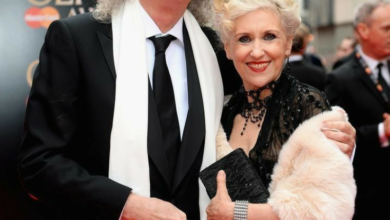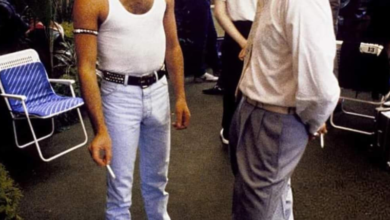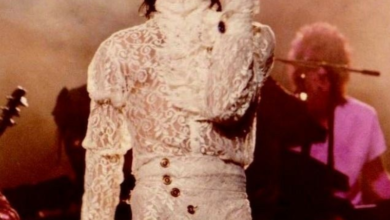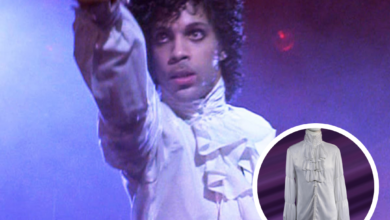Die Hard and Beyond: The Untold Story of Bruce Willis’s Transition to Action Stardom
OPINION: This article may contain commentary which reflects the author's opinion.
Bruce Willis is a name synonymous with action, but his journey to becoming a Hollywood icon wasn’t a conventional one. Before he was known for his legendary role as NYPD officer John McClane in Die Hard (1988), he was a comedic actor, charming audiences on the small screen. His seamless transition from comedy to action films is a testament to his talent and versatility, and it remains one of the most fascinating aspects of his career.
From Comedy to Action: The Surprising Leap
In the mid-1980s, Bruce Willis wasn’t on anyone’s radar as the tough guy hero who would save the day in explosive action films. Instead, he was best known for his role as David Addison in the hit television series Moonlighting (1985–1989). His performance as a fast-talking, witty detective alongside Cybill Shepherd showcased his sharp comedic timing and undeniable charm. His appeal was built on his ability to blend humor with vulnerability, making him a beloved TV star.
However, Willis had bigger ambitions. His comedic roots didn’t limit his range; they helped him stand out in an industry dominated by dramatic actors. Die Hard marked a turning point in his career—a role that not only broke away from his TV persona but also forever changed how audiences would perceive him.
The Die Hard Transformation
When Die Hard hit theaters in 1988, few expected the movie to become the defining action film of the 1980s. At the time, action heroes were often larger-than-life figures—muscle-bound icons like Arnold Schwarzenegger and Sylvester Stallone. Enter Bruce Willis, a relatively unknown TV actor who wasn’t the obvious choice for a Hollywood action lead. But his portrayal of John McClane, a relatable everyman thrown into extraordinary circumstances, was revolutionary. Unlike the traditional, indestructible heroes, McClane was flawed, vulnerable, and incredibly human—traits that made him resonate with audiences.
Willis’s performance in Die Hard was a perfect blend of grit and humor, a balance he had honed during his time on Moonlighting. His wit and charm, paired with his ability to convey genuine fear and determination, set McClane apart from other action heroes of the era. It was this unique combination that would propel him to superstardom, and McClane became a role that would define his career for decades.
A Versatile Career Beyond Action
While Die Hard cemented his place in the action genre, Willis quickly proved that he was much more than an action star. In the years following Die Hard, he took on a variety of roles that showcased his incredible range as an actor. His role in Pulp Fiction (1994), as the boxer Butch Coolidge, revealed his ability to thrive in Quentin Tarantino’s darkly comedic world. Willis’s performance added another layer of depth to his career, proving that he could handle both intense action and complex, character-driven roles.
In The Fifth Element (1997), Willis played Korben Dallas, a cynical ex-soldier tasked with saving the universe. The film, which blended sci-fi with action and humor, allowed Willis to once again tap into his action hero persona, but with a touch of his trademark humor and vulnerability. His ability to pivot between genres without losing his distinct screen presence was key to his longevity in Hollywood.
Perhaps one of his most iconic roles came in The Sixth Sense (1999), where he portrayed Dr. Malcolm Crowe, a child psychologist trying to help a young boy who sees dead people. The film marked a dramatic shift for Willis, showcasing his talent for serious, emotional performances. His ability to switch between action-packed roles and emotionally complex characters made him a truly versatile actor, earning him critical acclaim as well as box office success.
A Legacy of Reinvention
Bruce Willis’s transition from a comedic television actor to an international action star is nothing short of extraordinary. He did not fit the mold of the typical action hero, and that was precisely what made him so special. His success in Die Hard demonstrated that the genre could accommodate more nuanced, relatable characters. Willis’s subsequent roles proved that he was not confined to one type of film, but rather could seamlessly move between genres—action, comedy, drama, and thriller—always bringing his signature style to each role.
In an era when such crossovers were rare, Willis’s journey from TV to film, and from comedy to action, was groundbreaking. His career exemplifies the power of reinvention, and his legacy is one of an actor who carved out his own unique space in Hollywood. From the explosive thrills of Die Hard to the emotional depth of The Sixth Sense, Bruce Willis has shown that versatility and authenticity are key to achieving lasting stardom.
As fans, we celebrate not only the iconic action hero but the actor who was able to defy expectations and continue to evolve, proving that the best is often yet to come. Bruce Willis’s transition to action stardom wasn’t just about picking the right roles—it was about staying true to himself and embracing the wide range of his acting talents. And in doing so, he became a Hollywood legend.



